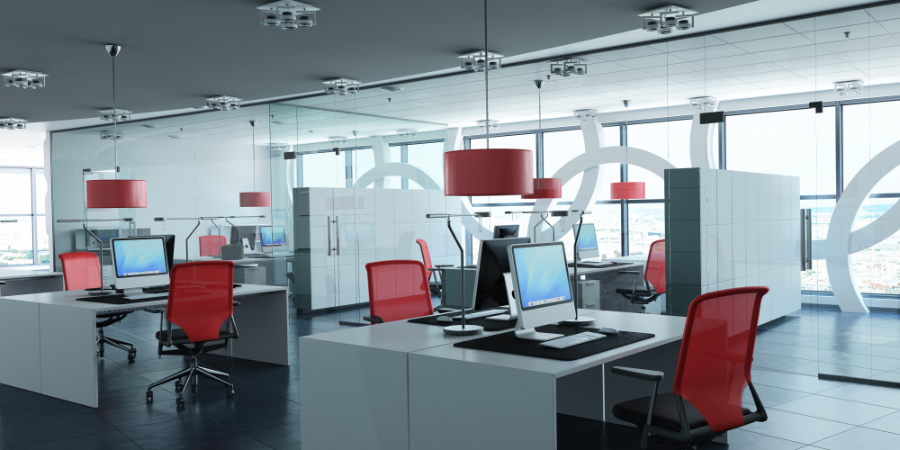Even though coronavirus case numbers and hospitalizations are falling all around the country, the COVID-19 pandemic is still with us, and most experts believe it will continue to impact our daily lives for at least another year. Scientists also warn that environmental changes could make viral outbreaks more commonplace in the future. After the upheaval of 2020, companies are determined to plan for the next viral threat and are already beginning to demand offices that are better suited to work in the age of pandemics. Here are some of the ways that COVID-19 will change the offices of tomorrow:
1. A Shift Toward Activity-Based Offices
What the term "office" means is changing in response to the pandemic. Shutdowns and quarantines have shown companies that remote work is feasible for many employees and are opting to keep large portions of their workforce primarily at home post-pandemic. That doesn't mean offices are doomed. Companies are re-envisioning offices as home bases where employees can gather for meetings and collaborative work sessions. The offices of the future will likely consist only of shared spaces with homes functioning as private offices.
2. Smarter, More Sophisticated Air Filtration
Top-of-the-line air filtration systems are shown to mitigate viral spread, and companies are looking for buildings that have the latest technologies already in place. Some systems even use UV light to kill viruses on surfaces and in the air. Today's HVAC systems use the IoT, allowing companies to closely monitor air quality in all parts of their offices from anywhere in the world.
3. More Touch-Less Technology
Many viruses can spread through contaminated surfaces, and so the offices of the future will have fewer things for people to touch. You can look forward to elevators that use voice commands, touch-less plumbing fixtures and doors that open wide to greet an approaching employee in the office buildings of tomorrow. Smart technology can also make light switches and thermostats obsolete. Even window blinds will begin to operate on their own, sliding into place in response to the presence of sunlight.
4. Easier-to-Sanitize Materials
Deep cleaning is essential to employee health, and some surfaces are just easier to clean than others. The offices of tomorrow will be made of nonporous materials, and building materials that have antimicrobial properties will grow more popular. You're also likely to see the end of carpeted offices, as soft flooring can harbor bacteria and viruses.
5. Smaller Offices
Because many employees are unlikely to return to working daily in their offices, companies will be able to downsize their spaces. Offices of tomorrow will be smaller in terms of square footage but likely far more open due to the collaborative function that these spaces are going to play.
6. Shift to the Suburbs
The pandemic has already sparked suburban flight with many people choosing to move out of urban centers, so that they can avoid public transportation and crowded sidewalks. Companies are starting to follow suit, scooping up more affordable office locations in the suburbs. As more employees migrate, you can expect the trend to continue with companies basing their offices near where employees live so those offices can act as drop-in centers for projects and meetings.








